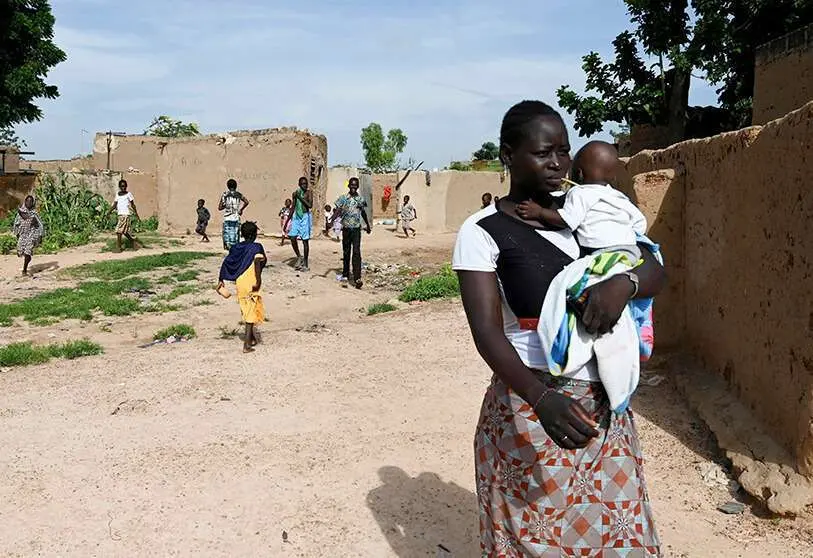Displaced people rise to 30,000 after 86 killed in Burkina Faso attack

The number of people displaced following the terrorist attack in northern Burkina Faso on the night of 11-12 June that killed 86 people has risen to more than 30,000, according to the latest figures from the Burkinabe authorities.
The Burkina Faso government's National Council for Emergencies and Rehabilitation (CONASUR) reported late yesterday that 30 211 people had been displaced, more than 64 % of them children, including nearly 35 % under the age of five.
More than 73% of the displaced come from the town of Seytenga, which is located about 40 kilometres from Dori (the capital of the Sahel region) and about 10 kilometres from the border with Niger, although those affected come from a total of 27 villages in the area.
On 17 June, when the number of displaced people was close to 16,000, the spokesman for the United Nations High Commissioner for Refugees (UNHCR), Matthew Saltmarsh, warned that more were expected to arrive in the coming days.
"The displacement crisis in Burkina Faso is one of the fastest growing in the world, with the number of internally displaced people reaching 1.9 million at the end of April, according to government figures," Saltmarsh said.
According to a report published on 16 June by the Citizens' Coalition for the Sahel (a collective of 49 Sahelian and West African civil society organisations supported by international NGOs), an average of eight civilians are killed every day in attacks in Burkina Faso, Mali and Niger.
The attack on Seytenga took place on the night of 11-12 June when gunmen stormed the town, killing 86 people, according to the Burkinabe government, a figure the opposition puts at 150, citing local sources.
Following the incident, the government declared a 72-hour national mourning period and Burkina Faso's President Paul-Henri Sandaogo Damiba - who has led the country since January's coup - vowed reprisals against the attackers.
Burkina Faso has suffered frequent jihadist attacks since April 2015, perpetrated by groups linked to both Al Qaeda and the Islamic State.
The region hardest hit by insecurity is the Sahel region, which shares a border with Mali and Niger, although jihadism has also spread to other neighbouring areas, such as the Boucle du Mouhoun region (west) since 2017 and the east of the country since 2018.
In November 2021, an attack on a Gendarmerie post caused 53 deaths (49 gendarmes and 4 civilians), which generated great social unrest that led to strong protests demanding the resignation of the then Burkinabe president, Roch Kaboré.
Months later, on 24 January, the military seized power in a coup d'état - the fourth in West Africa since August 2020 - and deposed the president.








